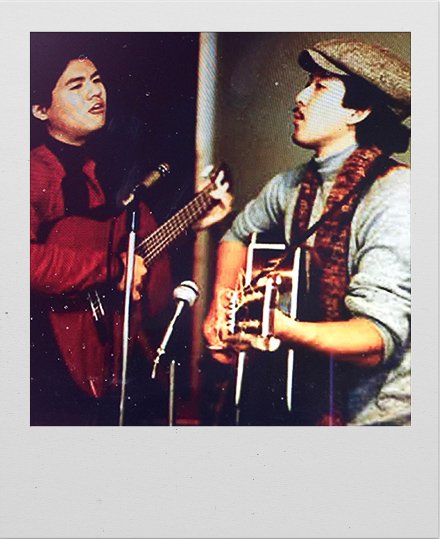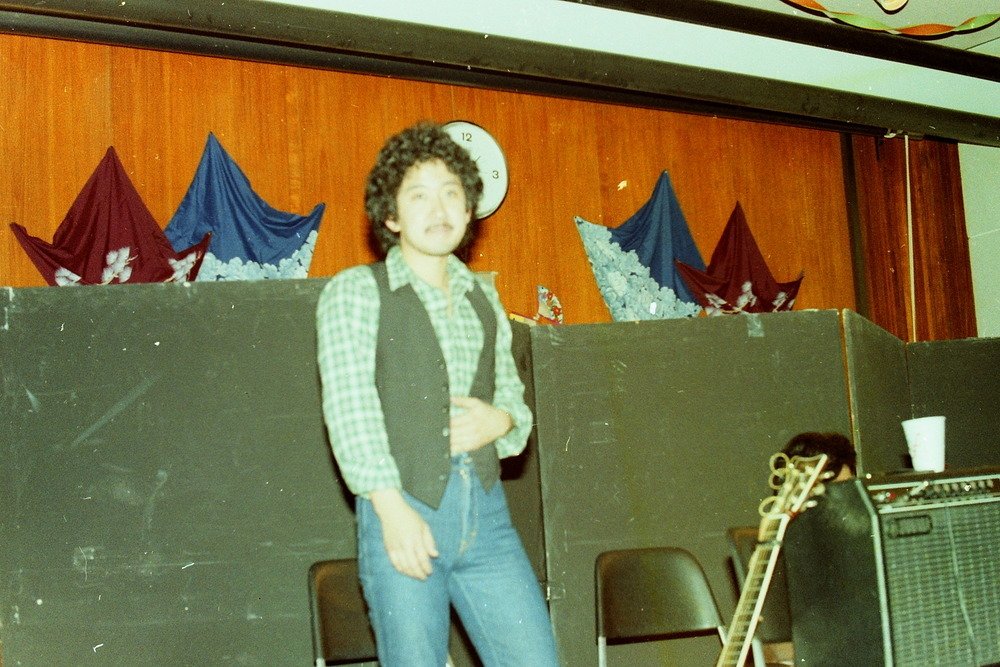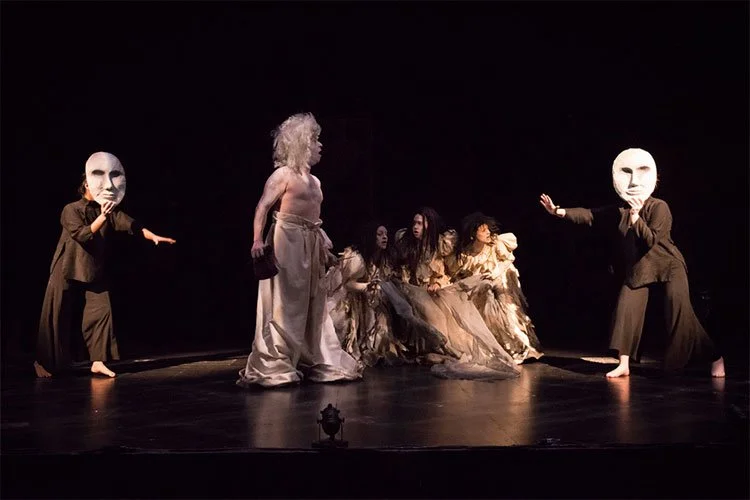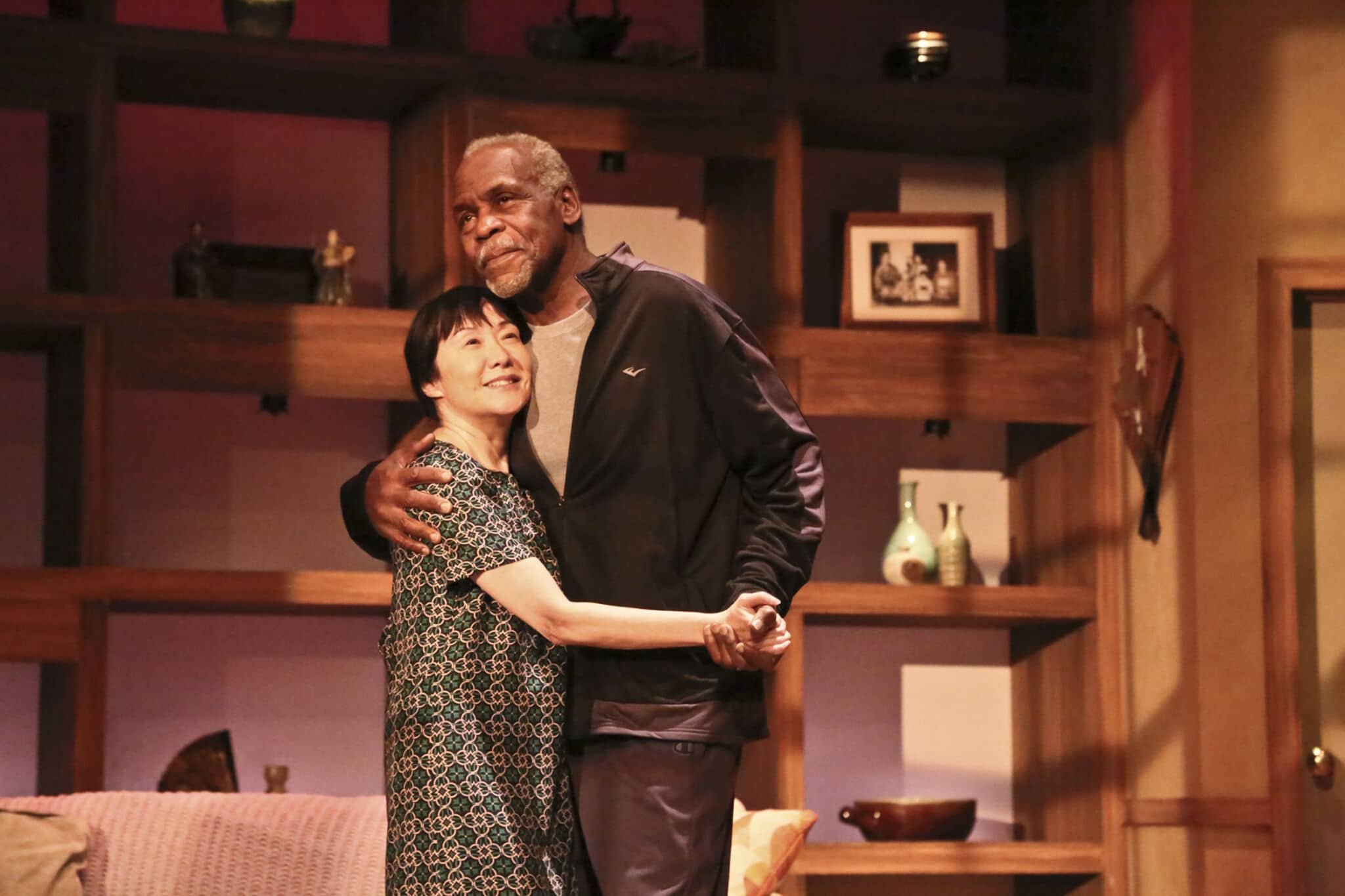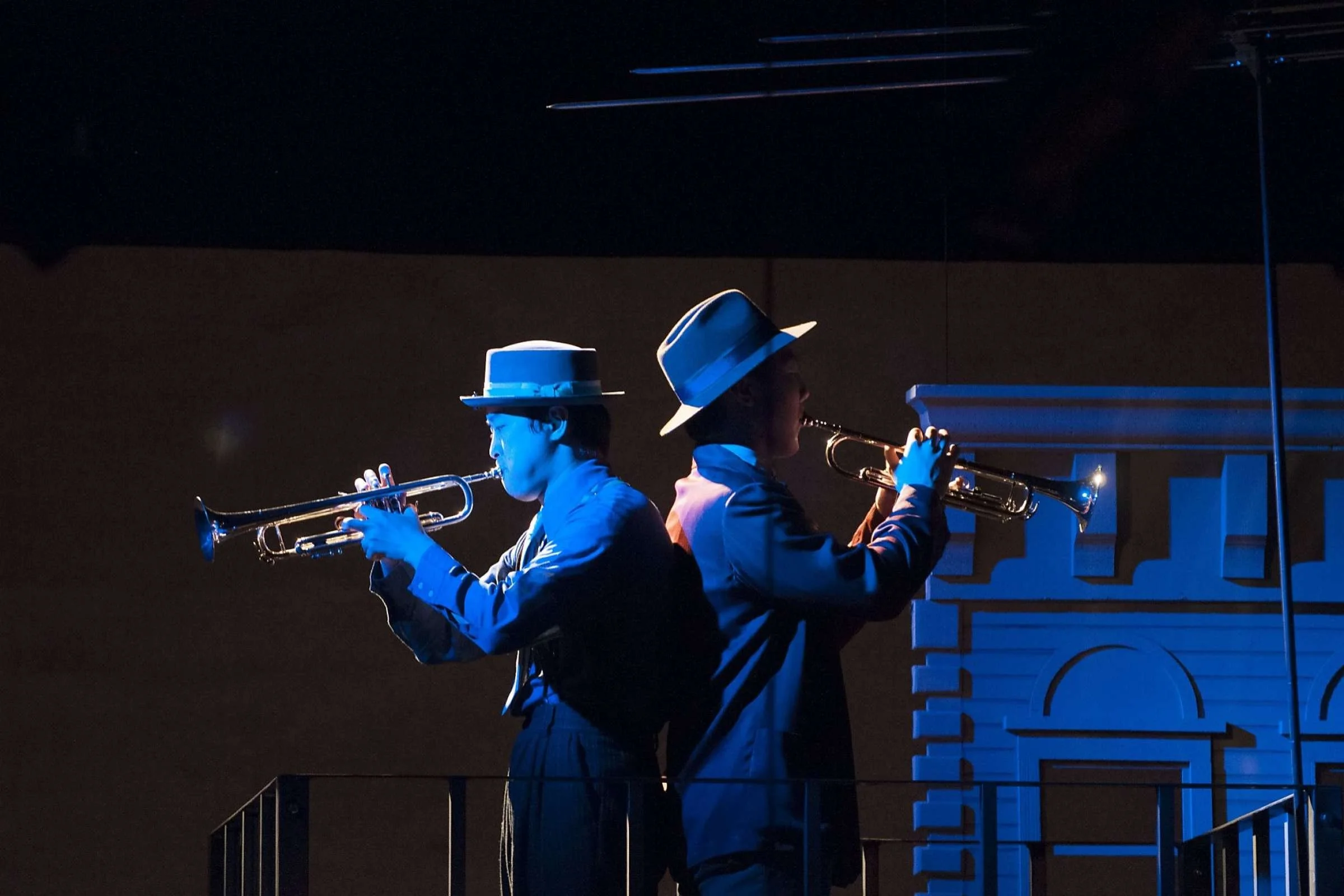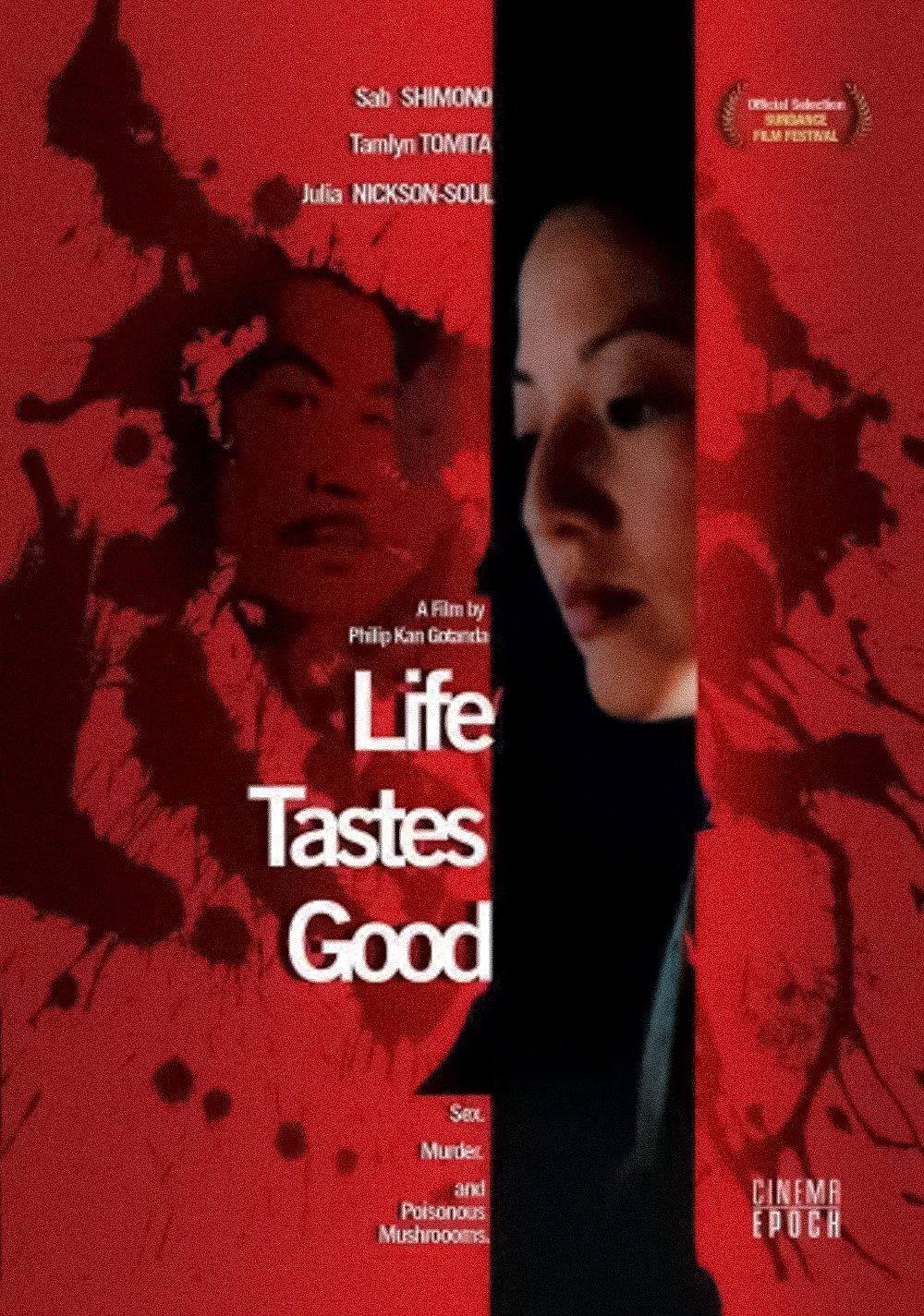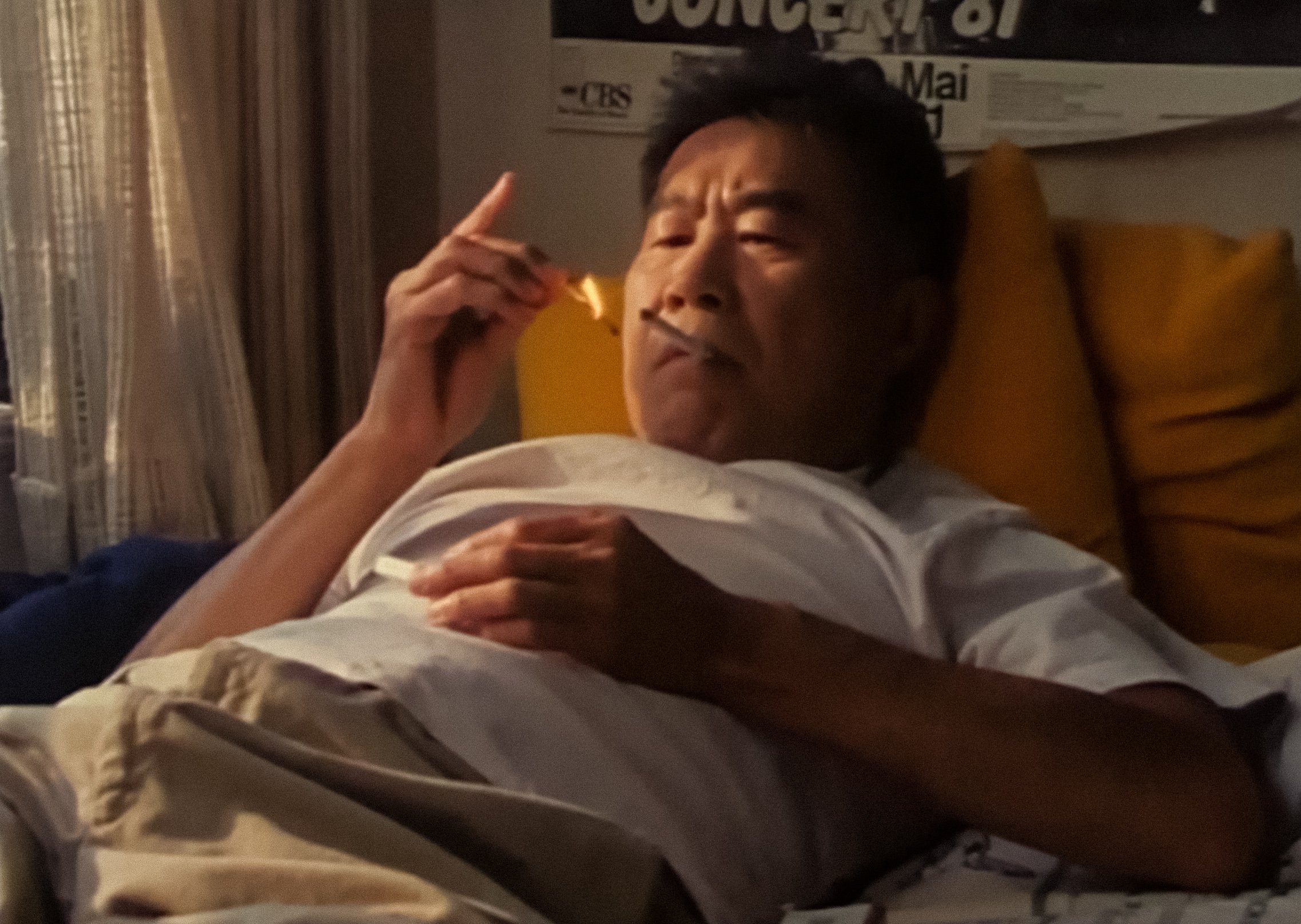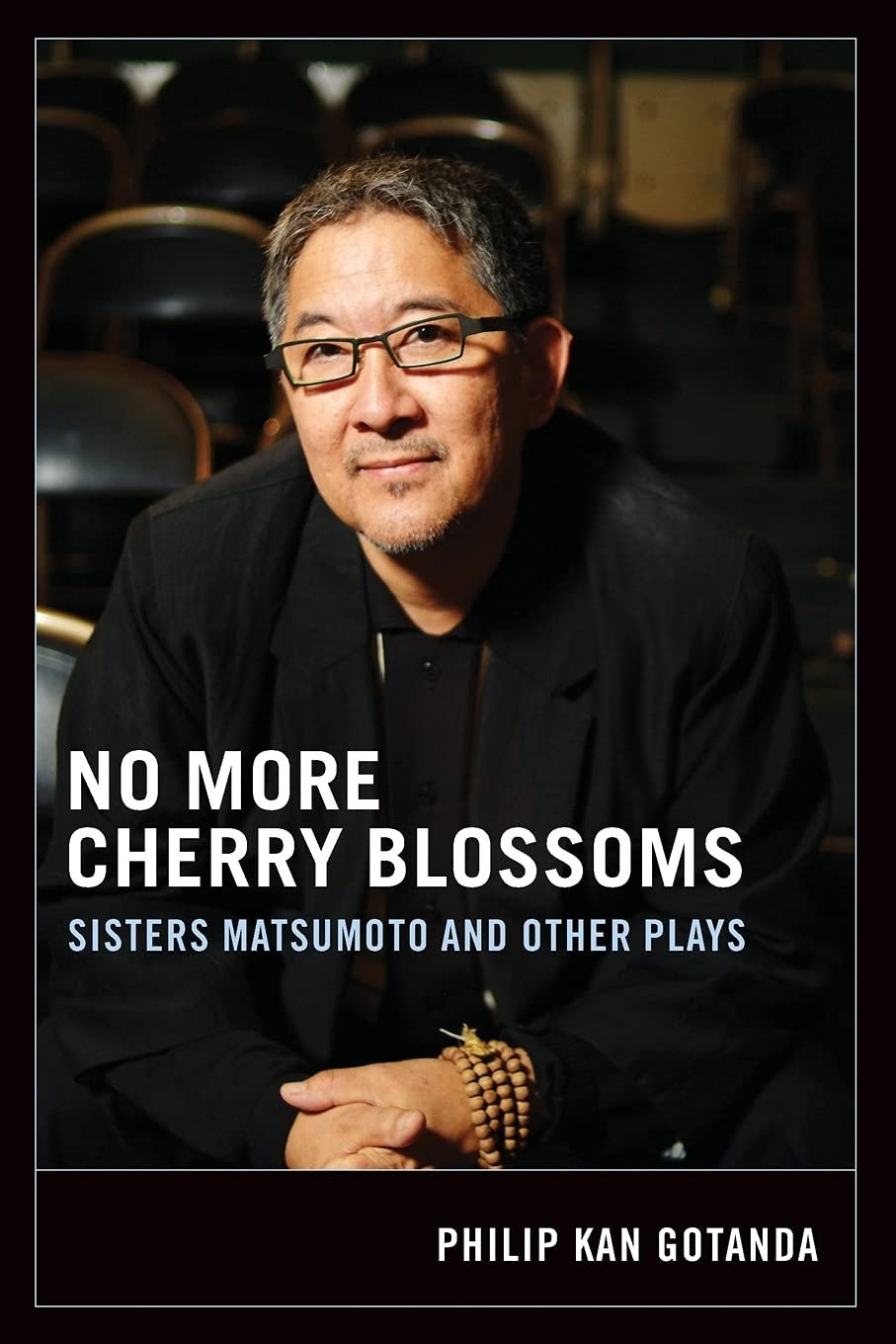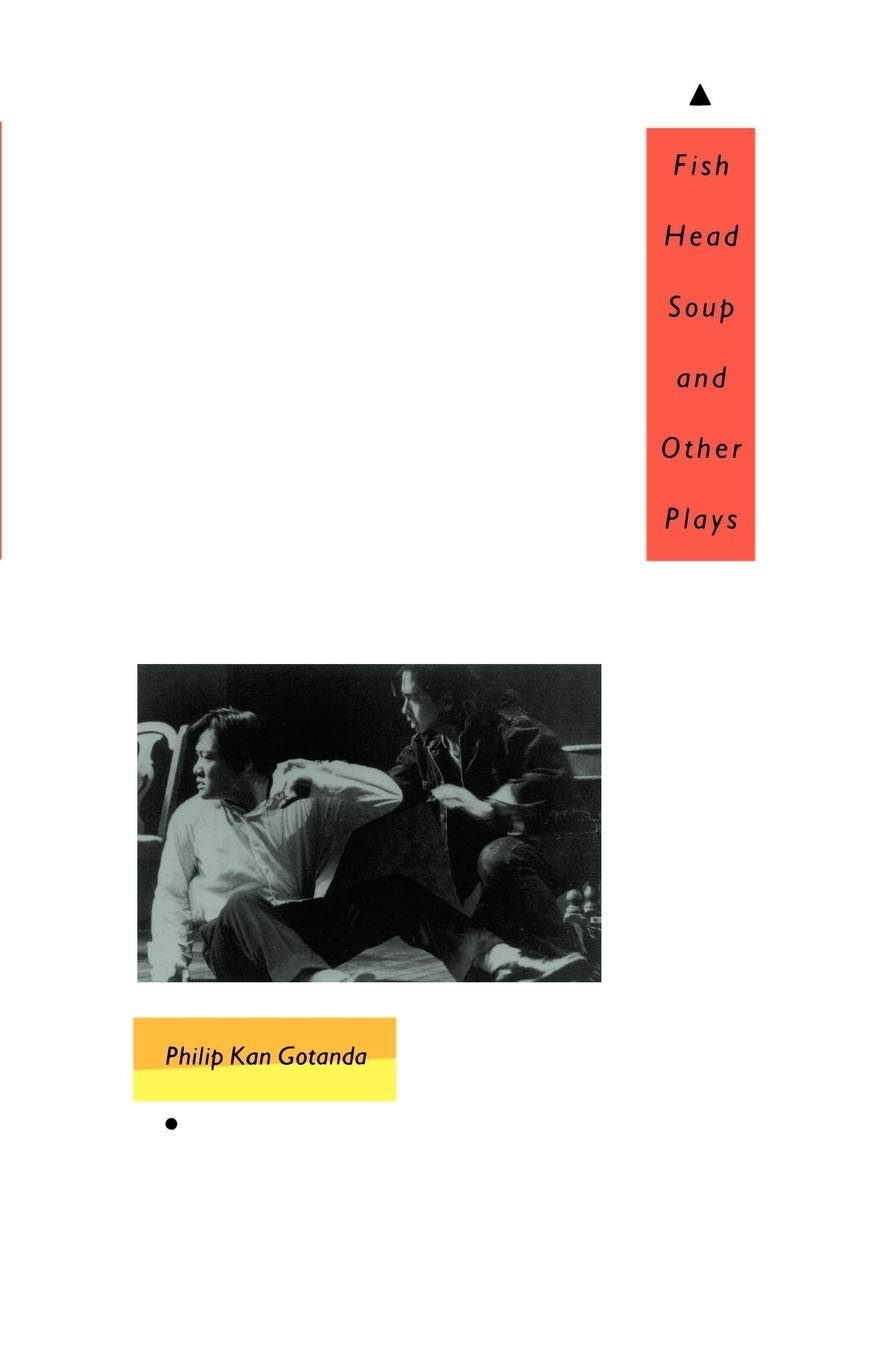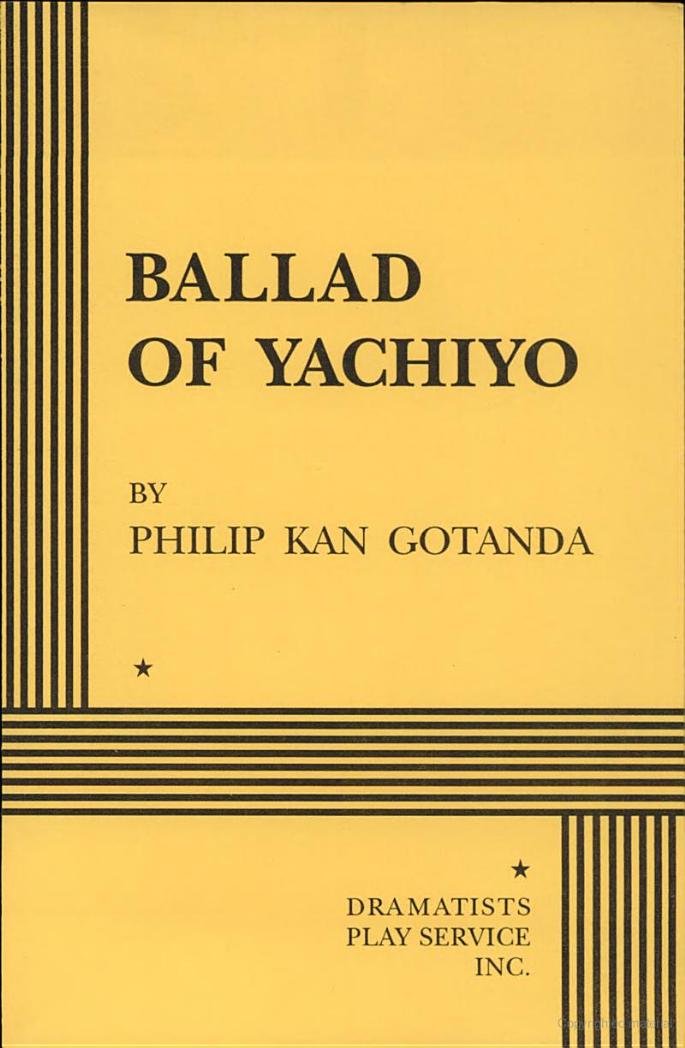The Book of Gotanda (Extended Biography)
Playwright Philip Kan Gotanda has been a major influence in broadening how theater has been defined in America. Through his plays and advocacy, Gotanda has been instrumental in bringing stories of Asians in the United States to mainstream American theater as well as to Europe and Asia. The author of one of the largest canon of Asian American-themed work, Gotanda is a seminal figure in the field of Asian American Drama. Philip Kan Gotanda’s plays are studied and performed extensively at universities, colleges and learning institutions in the United States and abroad.
Gotanda’s career in American Theater has been one of articulating and championing the stories of the marginalized and the underrepresented, the Other–in particular, the stories of the Asian in America. He started in the late 60’s and early 70’s writing and performing songs along with other Third World artist-activist performers, as they chronicled the emergent Asian American identity. Working with progressive Asian American political and social groups around the country, he became an active part of the developing 70’s/80’s/90’s cultural wave. Song titles include: The Ballad of the Issei, Asian American Dream, All American Asian Punk among others. In the late 70’s he became active in the Asian American Theater Movement that had recently begun with pioneers such as Frank Chin, Mako, Eric Hayashi, Tisa Chang, Wakako Yamauchi, Soon Tech Oh, Bea Kiyohara, Ernest Abuba, Beulah Kuo and others. Over the next thirty plus years American theater would be the focus of his work. In addition to composing songs about the Asian American experience, he performed at Asian American and other Progressive/ThirdWorld/Multi-Cultural programs, events, campaigns, demonstrations and fund-raisers around the country: San Francisco, Los Angeles, New York, Seattle, Tokyo, Vancouver, as well as various universities and colleges. Along with other artists, Gotanda formed AAMO (Asian American Music Organization) to produce and promote the new voices of Asian American Songwriter-Performers.
Philip Kan Gotanda challenges the thematic boundaries of the term “Asian American Theater” and has investigated themes of interracial marriage (Yohen/Dir. Seret Scott), generational conflicts of mixed-race children (The Wash/Dir. Richard Seyd), the historic intersection of African American and Asian American communities (After The War/Dir. Carey Perloff), and the stories of closeted gay Asian American performers in Hollywood (Yankee Dawg You Die/Dir. Sharon Ott). He began writing about historic transnational American figures, such as Chang and Eng Bunker (I Dream Of Chang And Eng/Dir. Peter Glazer), who provided an extraordinary locus for examining issues of orientalism, disability, minority slave ownership, free Black Jack sailors, and the specific Bunker legacy of having two biracial sons serving as soldiers for the Confederacy. Further explorations of the theme of transnationalism include a play about a third-generation Korean-American living in Japan (Love In American Times/Dir. Rick Lombardo) and a screenplay about Parisian-Korean adoptees (The Heart Remembers).
Gotanda’s works are not limited exclusively to Asian American issues, however. His point of view has always been one of deep-seated interest in all peoples and all stories. Examples written include a work about male violence against women (A Fist Of Roses), a Godot-like antiwar piece (#5 Angry Red Drum) and a new chamber opera about fathers and sons (Apricots of Andujar). He has worked with other Asian American theater artists to grow the forms of what defined Asian American Theater as it has evolved. In the late 70’s he wrote the book, music and lyrics for The Avocado Kid Or Zen In The Art Of Guacamole, an early “Asian American” musical that was presented at the two most prominent Asian American theaters, East West Players in LA and Asian American Theater Company in San Francisco. Both productions garnered much notice and proved highly influential. The impact of The Avocado Kid helped pave the way for a wave of Asian American themed musicals over the next decades.
In contrast to the acceptable trend of social realism in early ethnic theater, Gotanda felt it was limiting and consciously broke from that with experimental works. His early 80’s mythic dream play, The Dream of Kitamura, was a San Francisco-based collaboration with Eric Hayashi (AD/AATW) David Henry Hwang (Dir.), Lydia Tanji (Costumes) and Michael Sasaki (Composer) and was a floating sculptural narrative of text and images in adapted ritual activity. Kitamura was further developed at East West Players (Mako, Shizuko Hoshi) and the Theater of the Open Eye where Jean Erdman (AD) brought in additional collaborators (Isamu Noguchi, Joseph Campbell). The Dream of Kitamura helped provide a bridge between the strict politically correct consciousness of early Asian American theater and the more provocative forms of the experimental and the avant-garde. The presentations had an impactful response and led to Gotanda’s collaborations with Jean Erdman and Joseph Campbell (Theater of the Open Eye), Ray Manzarek (X), and a rather short-lived encounter with pioneering tattoo artist Ed Hardy.
Courtesy of Natalia Perez / UC Berkeley News
Gotanda began cultivating working relationships with artists from other communities. He has collaborated with African American artists, Danny Glover (Yohen), Steven Anthony Jones (After The War Blues), Carl Lumbly (The Jamaican Wash). He has worked with local Hispanic arts curator, René Yañez, as well as Culture Clash, the premiere Latino American comedy troupe. He wrote Beans, part of a larger Alma Delfina Project inspired by theater artist Sean San Jose’s family. Philip Kan Gotanda recently acted in The Other Barrio, a feature film about San Francisco’s Mission District, starring Richard Montoya. He has collaborated with artist, Gronk, and featured Herbert Siquenza in an evening of original spoken word he curated at East West Players. Gotanda works regularly with Campo Santo + Intersection for the Arts, San Francisco’s highly regarded culturally, racially, ethnically diverse progressive theater group.
Yohen (2017) / Courtesy of Michael Lamont & East West Players
Along with his canon of Asian American works, Gotanda is known for working with a range of aesthetic styles and mediums. From jazz (Hiroshima, David Benoit) to spoken word (new orientals), dance (Erika Chong Shuch) to symphonic (Kent Nagano), opera (Duykers & Duykers) to indie film (Life Tastes Good), director (Manzanar: An American Story) to performer (In the Dominion of Night/stage; The Kiss/film), Gotanda has shown a continual willingness to challenge his artistic world view.
Gotanda has collaborated with the most diverse spectrum of theaters. From large mainstream venues to experimental black boxes to ethnic specific Asian American-African American-Middle Eastern American theaters. He has consciously worked to bring his works' themes to the widest range of audiences. Theaters Gotanda has worked with include: Asian American Theater Co., A Contemporary Theater, American Conservatory Theater, Berkeley Rep, Campo Santo+Intersection for the Arts, East West Players, Eureka Theater, Golden Thread in SF, Seattle's Group Theater, Boston's Huntington Theater, L.A. Theater Center, La Mama, Magic Theater, Manhattan Theatre Club, Mark Taper Forum, Missouri Rep, New Federal Theater, New York Shakespeare Festival, Northwest Asian American, Pan Asian Rep, Playwrights Horizons, Robey Theater, San Jose Rep, Seattle Rep, Silk Road Risings, South Coast Rep, Studio Theater, Theater of the Open Eye, Wisdom Bridge among others.
Gotanda premiered his recent work, Love in American Times, at San Jose Repertory Theater where it was directed by Rick Lombardo. It is the telling of an arranged date between a young, beautiful Asian woman and a powerful, much older White man. It is provocative and very much a 21st Century love story. Mr. Gotanda’s large scale work, After the War, premiered at American Conservatory Theater where it was directed by Carey Perloff.
After the War centers itself around a Japanese American No-No Boy, whose loyalty as an American citizen is questioned as he refuses to be drafted by the American government as a protest against the government interning Japanese Americans on the West Coast during World War II. It chronicles San Francisco’s Japan-Town in the late 40’s when Japanese Americans returning from the Federal Internment Camps encountered a flourishing African American jazz scene in what was once considered a working class Japanese American enclave. The main character, Chester, a jazz musician/No-No boy finds himself caught in the middle of the two communities, each claiming the neighborhood as home. Gotanda wrote the text and directed the production of Maestro Kent Nagano’s Manzanar: An American Story, an original symphonic work with narration, about the impact of the World War II Internment of Japanese-Americans on the question of democracy in America. Featured performers included: Pat Suzuki, Kristi Yamaguchi, Sab Shimono, Sen. Dan Inouye, John Cho, George Takei, Dale Minami, Martin Sheen. It premiered at University of California, Berkeley’s Zellerbach Hall and UCLA’s Royce Hall.
A Japanese translation of his play, Sisters Matsumoto, opened in Tokyo with the Mingei Geikidan Company, directed by Seisuke Takahashi. His play, The Ballad of Yachiyo, was presented at the Gate Theatre in London in co-production with the National Theatre. #5 Angry Red Drum, an absurdist parable of America’s involvement in wars, recently premiered at the Asian American Theater Company, directed by M. Graham Smith. His play, Father is Child to Man, premiered as part of a 7 playwright collaboration, The DNA Trails, with Silk Road Risings theater in Chicago, directed by Steven Scott.
Philip Kan Gotanda developed a large piece, I Dream Of Chang And Eng, a reimagining of the lives of the conjoined American twins, Chang and Eng Bunker. A work in on-going development, it was presented in full production with the Department of Theater, Dance and Performance Studies at the University of California, Berkeley in 2010. It was directed by Peter Glazer. In 2012, I Dream Of Chang And Eng was presented by the Theater Department at UC Santa Cruz directed by Gina Marie Hayes. Gotanda re-conceived the original text of After The War for a new production with the Department of Theater, Dance, Performance Studies at the University of California, Berkeley; the new play is entitled, After The War Blues, and was directed by Steven Anthony Jones in the Spring 2014 season.
Courtesy of Ryan Montgomery / SFGATE
Gotanda is currently in collaboration with noted opera singer John Duykers and composer Max Gitech Duykers on a new performance opera, The Potato King of Hiroshima / California Apricots of Andujar. Gotanda is developing a new play, Hell Scream, adapted from an Ryunosuke Akutagawa short story with funding awarded by the MAP Fund. In a unique collaborative project investigating mutable perceptions of race, he has worked with the Lorraine Hansberry Theater in adapting his Japanese American family play, The Wash, to a Jamaican-American family play, The Jamaican Wash. It premiered in 2014, with noted actor Carl Lumbly in the lead, directed by Artistic Director of LHT, Steven Anthony Jones. Gotanda is working with Campo-Santo and Golden Thread theaters to explore adapting The Wash to Hispanic American and Armenian American families. Gotanda has written a commission for American Conservatory Theater/Carey Perloff A.D. to do an adaptation of a story, Save the I-Hotel, by author Lysley Tenorio. Based on a true event, the play will center on two aging Filipino American gentlemen being evicted from their residence of 40 years. Gotanda is also commissioned by A Contemporary Theatre/Kurt Beattie A.D. to adapt Tale of Heike in collaboration with Yussef El Guindi.
Philip Kan Gotanda is a respected independent filmmaker; his works having been seen at film festivals around the world. His last film, Life Tastes Good, was invited to be screened at the Sundance Film Festival, later shown on the Independent Film Channel and is available on Netflix and through Cinema Epoch Films. His short film The Kiss, which won the Golden Gate Award at the San Francisco International Film Festival, premiered at the Berlin International Film Festival and selected for the Sundance Festival, was shown on PBS nationally and screened domestically and internationally at Film Festivals. His other short film, Drinking Tea was also invited to Sundance, was shown on PBS and screened at film festivals around the world. Gotanda is one of only a few individuals selected to participate in both the Sundance Theater Lab (Fish Head Soup & After The War), as well as, the Sundance Filmmakers Lab for Directors and Screenwriters (Otto). His adaptation of his original play, The Wash, was made into a feature film starring Mako and Nobu McCarthy and released theatrically by Skouras Films. It was produced by American Playhouse and Lumiere Films/Cal Skaggs and directed by Michael Toshiyuki Uno.
Gotanda's awards and grants include: the Guggenheim, National Arts Club, Pew Charitable Trust, Rockefeller, The Lila Wallace Award, National Endowment for the Arts, TCGNEA, Sundance Theater Fellow, Sundance UCROSS Fellow, Map Fund, Creative Work Fund, Gerbode Foundation and others. Mr. Gotanda was selected a delegate of the Japanese American Leadership Delegation to Japan as part of a Japan Ministry of Foreign Affairs sponsored cultural exchange for prominent Japanese Americans. He was the 2008 Granada Artist in Residence at the UC Davis Department of Theater and Dance and a 2010 Artist in Residence at the UC Berkeley Department of Theater, Dance and Performance Studies. In 2011 Mr. Gotanda received the Edgerton Foundation Grant. In 2012 the New York Dramatists Guild awarded Mr. Gotanda the Flora Roberts Award For Recognition of Distinguished Work In Theater.
Gotanda’s collections of plays, No More Cherry Blossoms and Fish Head Soup and Other Plays, are published by the University of Washington Press. Other published plays include: The Wash, Yankee Dawg and You Die, The Dream of Kitamura, Day Standing on Its Head, The Wind Cries Mary, The Ballad of Yochiyo, Yohen, and In The Dominion of Night.
Gotanda holds a law degree from Hastings College of Law and studied pottery in Japan with the late Hiroshi Seto. He has played with music groups: Bamboo with David Henry Hwang, Sam Takemoto and Robert Kikuchi-Yngojo and Joe Ozu and the New Orientals, his retro jazz spoken word performance ensemble with Dan Kuramoto, Danny Yamamoto and Taiji Tamaki. Philip Kan Gotanda and Michael Sasaki produced and performed a Chinese version of ‘My Boyfriend’s Back’ with Joan Chen singing the lead for director Wayne Wang’s film, Dim Sum. It climbed high on the Hong Kong pop charts before it was banned from the airways for questionable language. Gotanda was recently appointed a full professorship with the Department of Theater, Dance and Performance Studies at UC Berkeley. He resides in the Berkeley Hills with his novelist-producer wife, Diane Emiko Takei, her mother Lilly Katsuko Takei, and their famously ill-behaved dog Toulouse.
